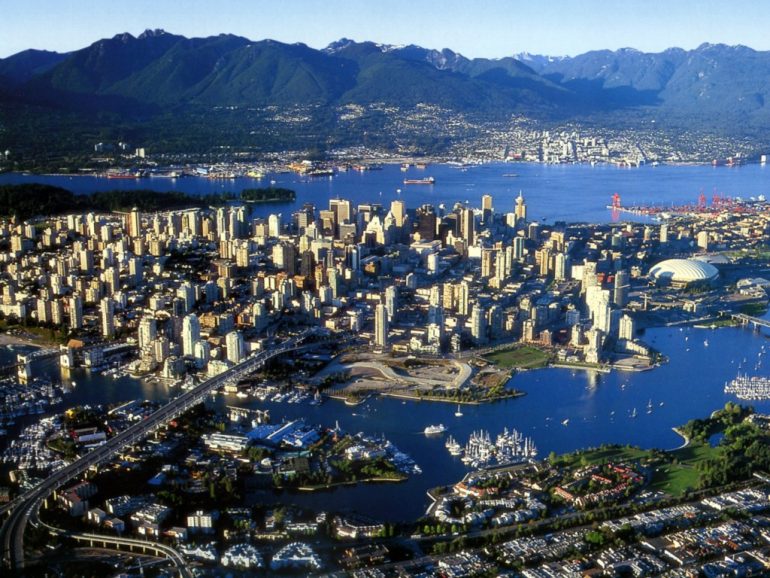The folks at Bloomberg Businessweek, the popular print and online business news outlet, believe that Vancouver is “the new tech hub,” and it could be because of a cronic backup of work visas available in the United States.
Earlier this week New York-based writer Karen Weise argued that the sudden influx of big-name tech companies setting up shop in Van City could be primarily due to “Canada’s more lax visa rules,” in comparison to the states.
The worry is that some companies, namely Twitter and Facebook, might not be doing much for the community in comparison to the help they’re getting in accessing easier work visas. Translation: there’s a suspicion that the big tech players are coming to Vancouver solely for the visa situation, without much consideration for Vancouver’s tech community.
The problem down south is that there’s a big backlog with the visas. “Each year the U.S. government grants as many as 85,000 H-1B visas for highly skilled workers,” wrote Bloomberg. “In the last two years, it received so many applications that it stopped taking them after five days and held a lottery. Companies applied for about 172,500 visas in April, meaning at least 87,500 engineers, developers, and others couldn’t take jobs in the U.S.
Compare that with the great white north, which welcomes any skilled worker with a job offer. It has lower salaries than in the U.S, a time-zone shared with Silicon Valley and its proximity to Seattle doesn’t hurt.
Bloomberg pointed out all the big-name companies who have set up shop lately in Vancouver, including:
-“Microsoft opened a small office in Vancouver in 2007 when U.S. visa applications for the first time quickly surpassed the congressional limit. This month it announced plans to more than double its roughly 300-employee office in Vancouver, where video games have been the focus. There, Microsoft will hire and train 400 software developers from around the world to work on mobile and cloud projects.”
-“Amazon, which has a small Vancouver outpost, signed a lease for up to 156,000 square feet of space in the downtown tower, enough for 1,000 employees. The company has more than 100 Vancouver-based job openings posted on its website.”
-“Salesforce moved its Vancouver operation into 17,500 square feet in Gastown.”
-“Twitter interviewed candidates for what it called in job postings a “global centre of excellence,” last year.
-“Facebook opened a temporary Vancouver office last May to train as many as 150 newly hired developers while they wait for U.S. visas.”
Microsoft’s Karen Jones may have given Bloomberg its most indicative answer. She said the giant software company did not choose Vancouver “purely for immigration purposes, but immigration is a factor,” not before saying “The U.S. laws clearly did not meet our needs.”
Hmmm…
The second part of the article was a bit more speculative, but nonetheless presented a valid point. Bloomberg reported “when Facebook hosted some lectures and hackathons last year, it required visitors to sign a general nondisclosure agreement barring discussion of the event. (Facebook says the agreements are standard at all its offices.)”. Apparently it irked a few locals who had already been running events for large amounts of techies for some time.
While several local tech companies regularly sponsor his events, Cliff Hammerschmid reported “total silence” from Twitter’s Vancouver office. “I have seen nothing of them.”
Which potentially led to the most interesting inference of the piece: “‘This is the worry: If big companies aren’t making a splash, are they just doing it for the visas?” Twitter declined to comment.”
It’s an interesting question. Is Canada being used for its work visas? Yes, probably, but logically the business such large tech companies bring to Vancouver might override those complaints. Nevertheless, it’s not a good idea to get in any tech community’s bad books. Don’t underestimate the power of caffeinated geeks.
Let’s hope some of these new entrants read the Bloomberg article and give it a thought.


